
On this page...
Annual Meetings
The 2025 Annual Meeting of the NCI Cohort Consortium has been cancelled.
Please continue to check the NCI Cohort Consortium events page for the latest information and announcements. Thank you for your understanding and patience.
View information about past meetings:
For information for Annual Meetings that occurred prior to 2023, please contact NCICohortConsortium@mail.nih.gov
NCI Cohort Consortium Webinar Series
Overview:
The purpose of this new webinar series is to share best practices for cancer epidemiology cohorts, identify challenges and share possible solutions, foster career development, and provide an opportunity to test out new ideas in a supportive environment. The idea for a webinar series, which emanated from the consortium’s two-year strategic planning process, was one of several strategies to help advance the mission of the consortium. Learn more about the NCI Cohort Consortium Strategic Initiatives.
Any interested individual is invited to participate; however, pre-registration is required. Each presentation will be about 30-40 minutes in length and allow for 30 minutes of discussion. Instructions for connecting to the webinars will be sent via e-mail to individuals who register.
Suggestions for webinar topic ideas can be submitted using the webinar proposal form, which will be reviewed by the Steering Committee.
Upcoming Topics and Speakers
There are currently no upcoming webinars scheduled.
Note: Additional speakers and topics may be added in the future.
Past Webinar Topics and Speakers
EGRP is dedicated to ensuring that our recorded webinars comply with Section 508 of the Rehabilitation Act (as amended) for individuals who are hearing and sight impaired. If you encounter any recorded webinar that does not meet your needs, please feel free to reach out to NCIEpiCommunications@mail.nih.gov.
2026
Improving Data Interoperability Across Cohort Studies

Denise Warzel, M.Sc.
Science Program Analyst
Center for Biomedical Informatics & Information Technology
Informatics and Data Science Program
Clinical & Translational Research Informatics Branch
National Cancer Institute

Nicole Gerlanc, Ph.D.
Lead Data Analyst
Connect for Cancer Prevention
Division of Cancer Epidemiology and Genetics
National Cancer Institute
Moderators:

Peter L. Kraft, Ph.D.
Senior Investigator
Trans-Divisional Research Program
Division of Cancer Epidemiology and Genetics
National Cancer Institute

Pietro Ferrari, Ph.D.
Branch Head
Nutrition and Metabolism
International Agency for Research on Cancer
World Health Organization
Reasonable Accommodations: Individuals who need reasonable accommodations to participate in this event should contact Denise Gnipp at denise.gnipp@nih.gov. Closed captioning will be made available.
View Webinar DescriptionJoin the NCI Cohort Consortium for a webinar on innovative approaches to improving data interoperability across cohort studies. The session highlighted efforts to apply the Observational Medical Outcomes Partnership Common Data Model to survey data and introduce tools, including Code Map capability, that enable mapping across data models based on Common Data Element semantic concepts. These approaches are designed to enhance data integration and support collaborative cancer cohort research.
2025
Federated Data Analysis Methods and Applications

Yong Chen, Ph.D., FASA, FACMI
Professor of Biostatistics
Director of Center for Health AI & Synthesis of Evidence (CHASE)
Director of Penn Computing, Inference and Learning (PennCIL) Lab
University of Pennsylvania

Paul Lambert, Ph.D., M.Sc.
Senior Researcher
Cancer Registry of Norway
Norwegian Institute of Public Health
Moderators:

Peter L. Kraft, Ph.D.
Senior Investigator
Trans-Divisional Research Program
Division of Cancer Epidemiology and Genetics
National Cancer Institute

Pietro Ferrari, Ph.D.
Branch Head
Nutrition and Metabolism
International Agency for Research on Cancer
World Health Organization
Federated data analysis allows for collaboration and analysis across institutions without physically moving individual-level data to a central location, thus protecting sensitive data and maintaining data security. Join the NCI Cohort Consortium for an insightful webinar on federated data analysis methods and tools, featuring advances in Privacy-Preserving Data Analysis (PDA) and practical applications of Stata for registry data. The session included an overview of the PDA toolbox![]() , real-world use cases, and guidance on when to use federated vs. metadata-based approaches. The session also showcased how Stata can be leveraged to manage, harmonize, and analyze large-scale registry datasets, with practical examples and best practices in the context of epidemiologic research.
, real-world use cases, and guidance on when to use federated vs. metadata-based approaches. The session also showcased how Stata can be leveraged to manage, harmonize, and analyze large-scale registry datasets, with practical examples and best practices in the context of epidemiologic research.
Harmonizing Longitudinal Data: The Maelstrom Approach and Tools

Isabel Fortier, Ph.D.
Principal Investigator
Maelstrom Research
Research Institute of the McGill University Health Centre

Rita Wissa, B.Sc.
Executive Director
Maelstrom Research
Research Institute of the McGill University Health Centre
Moderators:

Peter L. Kraft, Ph.D.
Senior Investigator
Trans-Divisional Research Program
Division of Cancer Epidemiology and Genetics
National Cancer Institute

Pietro Ferrari, Ph.D.
Branch Head
Nutrition and Metabolism
International Agency for Research on Cancer
World Health Organization
Harmonizing data across studies is a critical step in supporting robust epidemiological research, but it presents a range of scientific, methodological, and technical challenges. This webinar provided an overview of the obstacles encountered by research teams when harmonizing collected data and introduced resources developed to improve speed, cost-effectiveness, consistency, and transparency of the harmonization process.
SEER Biospecimen Resources for Tissue-based Research

Alison Van Dyke, M.D., Ph.D., F.C.A.P.
National Cancer Institute

Liming Yang, Ph.D.
National Cancer Institute

Danielle Carrick, Ph.D., M.H.S.
National Cancer Institute
Moderators:

Yu Chen, Ph.D., M.P.H.
NYU Grossman School of Medicine

Kimberly Bertrand, Sc.D.
Boston University Chobanian & Avedisian School of Medicine
This webinar provided information about the SEER-linked Virtual Tissue Repository (VTR) Program and the research enabled by the Residual Tissue Repository (RTR). Participants were presented with an overview of the VTR’s infrastructure, recent results from a pilot integrating the VTR with the SEER (Surveillance, Epidemiology, and End Results) Program, and the unique opportunities it offered for population-based cancer research using biospecimens.
Speakers presented insights into how the VTR facilitated access to high-quality, annotated tissue samples linked with cancer registry data and how researchers could leverage this resource for studies in molecular epidemiology, biomarker discovery, and translational cancer research.
The session also highlighted real-world examples of research projects that utilized the RTR, illustrating how archived residual tissue samples were used to advance scientific discovery and inform public health strategies.
Navigating Epidemiology Careers in Academia, Industry, and Government

Hilary Robbins, Ph.D., M.H.S., M.S.P.H.
International Agency for Research on Cancer, WHO

Doratha Armen Byrd, Ph.D., M.P.H.
Moffitt Cancer Center

Christina Clarke Dur, Ph.D., M.P.H.
GRAIL
Moderators:

Caroline Um, Ph.D., M.P.H., R.D.
American Cancer Society

Lauren Barber, Ph.D.
Emory University
The NCI Cohort Consortium’s Associate Member Council hosted an informal discussion on careers in epidemiology. Distinguished professionals across academia, industry, and government shared insights into their career journeys. This webinar was held to support early career scientists, with a particular focus on working within a consortium.
2024
No Time, No Problem! How to Get the Most Productivity Out of Your Workday

Lauren McCullough, PhD, MSPH![]()
Associate Professor
Emory University
This meeting was organized by the Associate Member Council of the NCI Cohort Consortium to support early stage investigators as they navigate the multiple demands of starting a research career with a particular focus on working within a consortium.
NCI Cohort Consortium and Consortium of Metabolomics Studies (COMETS), "Cross Consortia Research on Metabolomics and Health"

Steven Moore, PhD, MPH
Senior Investigator
Division of Cancer Epidemiology & Genetics
National Cancer Institute

Mary Playdon, PhD, MPH![]()
Assistant Professor
Huntsman Cancer Institute
University of Utah
Moderators:

Jessica Madrigal, PhD, MS
Research Fellow
National Cancer Institute

Rachael Stolzenberg-Solomon, PhD, MPH, RD
Senior Investigator
National Cancer Institute
In this webinar, we examined research from cohorts in both COMETS and the NCI Cohort Consortium. Dr. Mary Playdon described an ongoing project that integrates dietary pattern, genetic, and metabolomics data to investigate biological pathways linking dietary patterns and colorectal cancer risk. Dr. Steven Moore presented results from a meta-analysis of cohort studies to examine associations between metabolites, age and BMI across different populations using COMETS Analytics web-based statistical software. The goal of the webinar was also to highlight the mission and work of the two consortia and to showcase possibilities for cross-consortia collaborations.
2022
Using the All of Us Research Program Data for Cancer Researchers

Sheri Schully, PhD![]()
Deputy Chief Medical and Scientific Officer
Division of Medical and Scientific Research
All of Us Research Program, National Institutes of Health

Michael Lyons, PhD
Scientific Project Manager
Vanderbilt University Medical Center
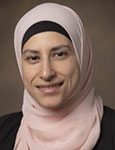
Lina Sulieman, PhD
Research Assistant Professor of Biomedical Informatics
Vanderbilt University Medical Center
The Research Program is enrolling a diverse group of at least 1 million persons in the United States to accelerate biomedical research and improve health of individuals and populations. In this webinar, the speakers gave a quick introduction to the current status of the cohort and provided a hands-on training session for scientists interested in accessing and analyzing All of Us Data.
Using Medicare Data for Cancer Research

Heather Eliassen, ScD![]()
Professor of Nutrition and Epidemiology
Harvard T.H. Chan School of Public Health
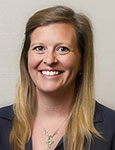
Lindsey Enewold, PhD, MPH
Epidemiologist
Healthcare Assessment Research Branch
Healthcare Delivery Research Program

James V. Lacey, Jr., PhD, MPH![]()
Professor and Director
Division of Health Analytics
Department of Computational and Qualitative Medicine
Moderators:

Yu Chen, PhD, MPH![]()
Professor of Epidemiology
Departments of Population Health and Environmental Medicine
New York University School of Medicine
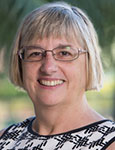
Lynne Wilkens, DrPH, MS![]()
Director, Biostatistics Shared Resource, University of Hawaiʻi Cancer Center
Associate Director, Shared Resources, University of Hawaiʻi Cancer Center
Full Member, Population Sciences in the Pacific Program (Cancer Epidemiology), University of Hawaiʻi Cancer Center
This webinar builds upon the "Perspectives on CMS Linkage for Cancer Research in Cohort Studies" presentation during the NCI Cohort Consortium Annual Meeting. This webinar described cohort investigators' experiences with conducting Medicare linkages.
Geospatial Data and Methods for Characterizing Social and Built Environments in Cohorts

Salma Shariff-Marco, PhD, MPH![]()
Associate Professor, Department of Epidemiology & Biostatistics
Co-Director, Biostatistics and Population Sciences Core
Helen Diller Family Comprehensive Cancer Center
University of California, San Francisco
Moderators:
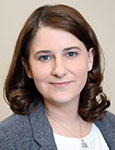
Jessica Petrick, PhD, MPH![]()
Epidemiologist
Slone Epidemiology Center
Assistant Professor of Medicine
Boston University School of Medicine

Yin Cao, ScD, MPH![]()
Associate Professor of Surgery
Division of Public Health Sciences
Department of Surgery
Washington University School of Medicine
This webinar included an overview of theoretical frameworks and data resources for measuring structural and social determinants of health with geospatial data. In addition, innovative methods/approaches for characterizing the attributes of the neighborhood in both non-diseased and cancer survivor cohort studies was presented. Lastly, opportunities and challenges in applying geospatial data and methods were discussed.
2021
Measurements of Aging to Use in Cancer Cohort Studies

Elizabeth Feliciano, ScD, SM![]()
Research Scientist II, Division of Research
Kaiser Permanente Northern California
Moderators:

Bette Caan, DrPH![]()
Research Scientist III, Division of Research
Kaiser Permanente Northern California
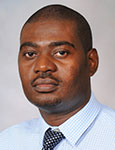
Samuel Antwi, PhD![]()
Associate Professor of Epidemiology, College of Medicine and Science
Associate Consultant, Department of Health Sciences Research, Mayo Clinic
Learn more about common measurements of aging that may be done using existing cancer epidemiology cohort survey data and biospecimens. Frailty measures and aging trajectory data was presented from the Women’s Health Initiative and other cohorts, and use of non-cancer comparison groups was discussed.
Early-onset Colorectal Cancer: What Do We Know and Where Do We Go?

Peter Campbell, PhD, MSc
Professor
Albert Einstein College of Medicine

Yin Cao, ScD, MPH![]()
Associate Professor of Surgery
Washington University in St. Louis
Moderators:

Jessica Petrick, PhD, MPH![]()
Epidemiologist, Slone Epidemiology Center
Assistant Professor of Medicine, Boston University School of Medicine

Neil Murphy, PhD![]()
Epidemiologist, Section of Nutrition and Metabolism, International Agency for Research on Cancer (IARC), Lyon, France
Early-onset colorectal cancer incidence, defined as arising in individuals <50 years of age, has been rapidly rising in the United States and globally. However, reasons for this increasing trend remain unclear. This webinar described early-onset colorectal cancer trends, etiologic studies, and methodological challenges and opportunities within the NCI Cohort Consortium to conduct research on rare tumor “subtypes”. Participants learned more about the Colorectal Cancer Pooling Project and other similar pooling projects and how these efforts can build upon and link with larger ongoing research in this area.
The Value of Tumor Immune Analyses in Population Studies

Shuji Ogino, MD, PhD, MS![]()
Chief of Molecular Pathological Epidemiology (MPE) Program, Department of Pathology, Brigham & Women's Hospital
Professor, Harvard Medical School (Pathology) and Harvard T.H. Chan School of Public Health (Epidemiology)
Moderators:
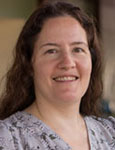
Melissa Merritt, PhD![]()
Associate Member, Population Sciences in the Pacific Program (Cancer Epidemiology), University of Hawaiʻi Cancer Center
Assistant Professor (Assistant Researcher), University of Hawaiʻi Cancer Center, University of Hawaiʻi at Mānoa

Stephanie Schmit, PhD, MPH![]()
Associate Staff, Genomic Medicine Institute, Cleveland Clinic
Member, Cancer Prevention Control & Population Research Program, Case Comprehensive Cancer Center
Tumor pathologic features are routinely examined in every cancer case and inform clinical decision making. Across many cancer types, there is a growing interest in immune cells within the tumor microenvironment, which are often strongly associated with patient survival. This webinar will discuss various strategies of immune analyses (including use of routine pathology slides) in population studies. Participants will learn how to incorporate and utilize tumor characteristics data, especially immune cell infiltrates, in population studies. Studies of the associations between exposures and tumor pathology subtypes may provide insight into the etiology of cancer and mechanisms of cancer development.
Push Button Data Sharing: Web-Based Self-Service and Automated Data Delivery in the California Teachers Study

James V. Lacey, Jr., PhD, MPH![]()
Professor and Director, Division of Health Analytics, Department of Computational and Quantitative Medicine
City of Hope

Emma Spielfogel, BA![]()
Data Analyst, California Teachers Study (CTS)
City of Hope
Moderators:

Samuel Antwi, PhD![]()
Associate Professor of Epidemiology, College of Medicine and Science
Associate Consultant, Department of Health Sciences Research
Mayo Clinic

Michael Jones, PhD, MsC![]()
Senior Staff Scientist, Division of Genetics and Epidemiology
Institute of Cancer Research, London
The California Teachers Study (CTS), a cancer risk cohort study, has developed tools to automate data sharing. This webinar provided a demonstration of those tools as well as an overview of the data and technology that those tools use. The promotion of data sharing is a goal area of the Cohort Consortium. Cohort investigators and research teams will gain a better understanding of how they can request and use CTS data in their individual or Consortium projects and take steps to share their data in similar ways.
2020
Supporting Early Career Investigators in Cancer: Building Professional Resilience and Supportive Networks in Uncertain Times
Moderators:

Katie O’Brien, PhD, MSPH
Staff Scientist, Chronic Disease Epidemiology Group
National Institute of Environmental Health Sciences

Erika Rees-Punia, PhD, MPH![]()
Principal Scientist, Epidemiology and Behavioral Research
American Cancer Society
Speakers:

Kimberly Bertrand, ScD, MPH![]()
Assistant Professor of Medicine, Slone Epidemiology Center
Boston University

Julianne Lunde, MA![]()
Program Manager, Lymphoma Epidemiology Laboratory
Mayo Clinic

Lauren McCullough, PhD, MSPH![]()
Assistant Professor of Epidemiology, Rollins School of Public Health
Member, Winship Cancer Institute
Emory University

Rosalie Waller, PhD![]()
Research Associate, Biomedical Statistics and Informatics, Health Sciences Research
Mayo Clinic
The NCI Cohort Consortium Associate Member Council (AMC) is the representative body of early career investigators within the NCI Cohort Consortium. It serves to engage and support early career investigators through professional development, career networking opportunities, and research collaborations within the NCI Cohort Consortium and to position members of the next generation of investigators to attain leadership roles within the Consortium. This webinar included a panel discussion in which speakers addressed skills for navigating work and productivity during the pandemic. Strategies included goal setting, saying “no” and protecting your time (and sanity), networking and leading teams remotely, and starting a new position during the pandemic.